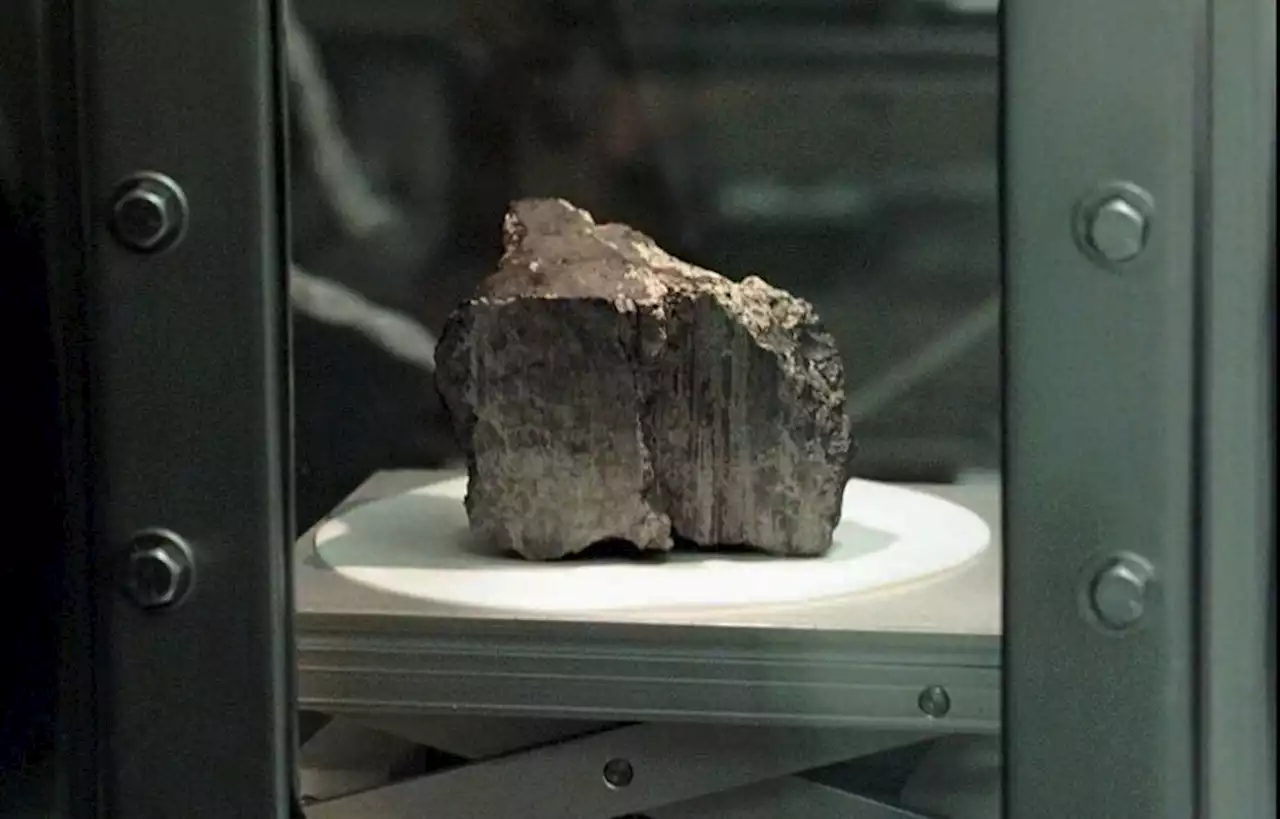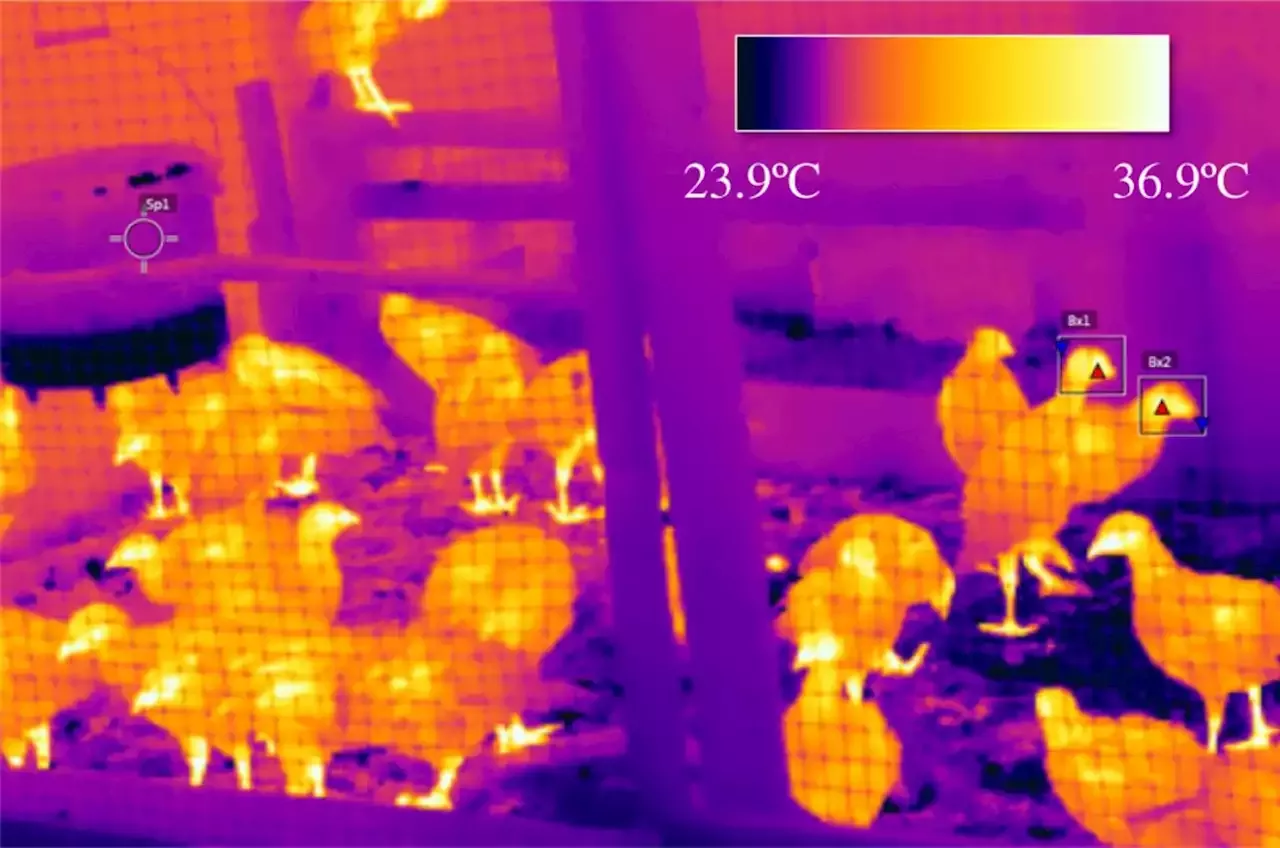Study: Aggressive Interactions Induce Rapid Temperature Changes in Pheasants biology science
while they engaged in spontaneous aggressive interactions during a brief period of confinement; they found that head temperature dropped sharply in the few seconds prior to an attack, followed by an increase and then a more gradual decline back down towards baseline levels; aggressors were on average slightly hotter than recipients, but the changes in temperature were similar for both roles.
The birds were a mix of full-sibs, half-sibs and unrelated individuals that had hatched in artificial incubators from eggs collected from pens of freely mating polygynandrous adults. “In the wild, pheasants exhibit harem defense polygyny, with dominant males maintaining control of territories over a prolonged period. An individual adult male’s social rank strongly influences his mating success.”
“We expected that a fight would be more stressful for the pheasant on the receiving end of the aggression, and therefore that we’d see a stronger response in them.”
France Dernières Nouvelles, France Actualités
Similar News:Vous pouvez également lire des articles d'actualité similaires à celui-ci que nous avons collectés auprès d'autres sources d'information.
 The #1 Worst Drink for Your Liver, New Study Says — Eat This Not ThatNew research reveals a drink that can harm the liver in regular doses... and unlike alcohol, there's no minimum required age to drink this.
The #1 Worst Drink for Your Liver, New Study Says — Eat This Not ThatNew research reveals a drink that can harm the liver in regular doses... and unlike alcohol, there's no minimum required age to drink this.
Lire la suite »
 Cannabis compounds prevent coronavirus from entering human cells: Oregon State University studyAccording to a study from researchers at OSU, cannabis compounds show the ability to prevent the coronavirus that causes COVID-19 from entering human cells.
Cannabis compounds prevent coronavirus from entering human cells: Oregon State University studyAccording to a study from researchers at OSU, cannabis compounds show the ability to prevent the coronavirus that causes COVID-19 from entering human cells.
Lire la suite »
 The Sad Truth About Curing Your Hangover, Says New Study — Eat This Not ThatIf you've been searching for a full-proof remedy for curing your hangover, you might not find relief from this latest study.
The Sad Truth About Curing Your Hangover, Says New Study — Eat This Not ThatIf you've been searching for a full-proof remedy for curing your hangover, you might not find relief from this latest study.
Lire la suite »
 Study: No sign of life in Mars meteoriteDuring Mars’ wet and early past, at least two impacts occurred near the rock, heating the planet’s surrounding surface, before a third impact bounced it off the red planet and into spac…
Study: No sign of life in Mars meteoriteDuring Mars’ wet and early past, at least two impacts occurred near the rock, heating the planet’s surrounding surface, before a third impact bounced it off the red planet and into spac…
Lire la suite »
 Bald eagle population growth stunted by lead poisoning, study findsBald eagles' population size is being affected by lead poisoning, according to scientists at the Department of Public and Ecosystem Health at Cornell University. A study found the birds are eating hunters' gunshot ammunition, decreasing their population.
Bald eagle population growth stunted by lead poisoning, study findsBald eagles' population size is being affected by lead poisoning, according to scientists at the Department of Public and Ecosystem Health at Cornell University. A study found the birds are eating hunters' gunshot ammunition, decreasing their population.
Lire la suite »
 No signs of Martian life in meteorite found in Antarctica, study saysA 4-billion-year-old meteorite found in the 1980s was said to contain evidence of life on Mars until scientists disproved the theory on Thursday.
No signs of Martian life in meteorite found in Antarctica, study saysA 4-billion-year-old meteorite found in the 1980s was said to contain evidence of life on Mars until scientists disproved the theory on Thursday.
Lire la suite »
